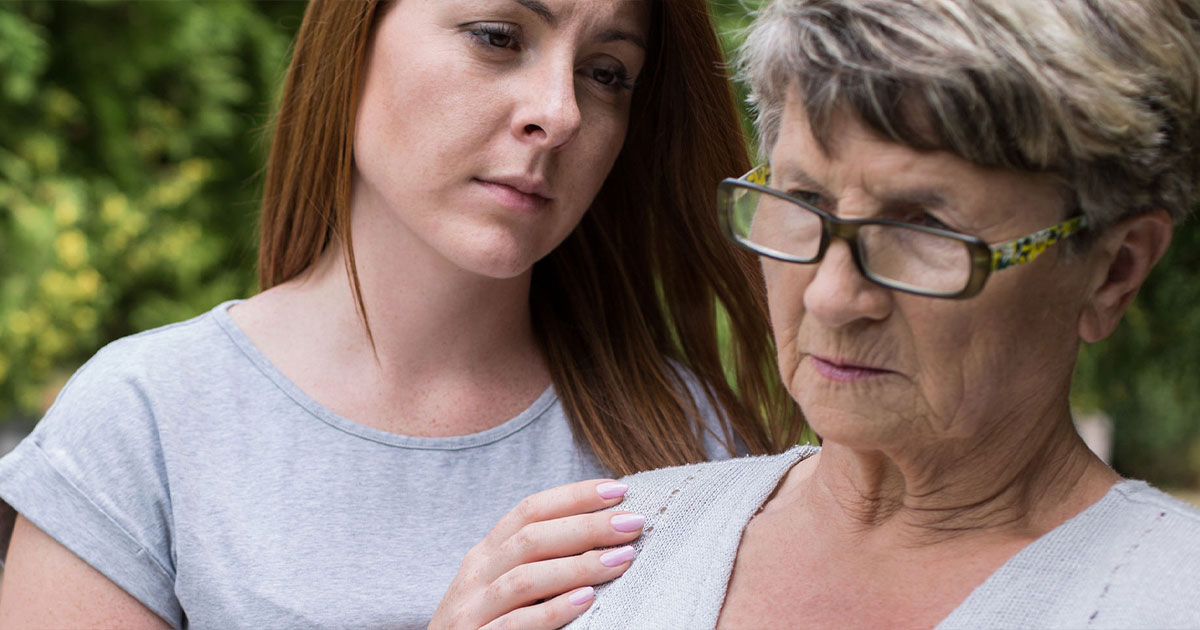Why are older adults at an increased risk of depression? Because depression is more common in people with other illnesses. About 80% of people 65 and over have at least one chronic health condition, and 50% have two or more, according to the Centers for Disease Control.
Only 10% affected by later-life depression ever receive treatment. Why? Because many think their depression symptoms (or those of their loved ones) are a normal part of aging, so they don't pursue treatment. In addition, people with depression are often misdiagnosed and undertreated because symptoms are thought to be from another chronic health condition.
RISK FACTORS FOR DEPRESSION
- Diagnosed with a serious medical condition such as diabetes, cancer, stroke, MS, dementia, etc.
- Personal or family history of depression, anxiety, substance use disorder or other mental illness.
- Reduced functional ability or mobility.
- Chronic pain.
- Family history of vascular illness.
- Recent traumatic or stressful event(s).
- Financial issues.
- Caregiver stress.
- Elder abuse.
- Lack of physical activity.
- Loneliness.
If depression goes untreated, older adults face increased risks of additional illnesses and cognitive decline.
The best way to determine if someone is depressed is with a physical exam with a primary care provider which includes a review of all medications, plus a clinical and psychiatric interview. Blood tests and imaging studies, such as a CT scan, can eliminate other medical conditions that require different treatments.
SIGNS AND SYMPTOMS OF DEPRESSION
- Sadness or feelings of despair.
- Loss of interest in activities enjoyed in the past.
- Feelings of hopelessness or helplessness.
- Trouble concentrating, memory problems, confusion.
- Lack of motivation and energy.
- Feelings of guilt and worthlessness.
- Unexplained or aggravated aches and pains.
- Neglecting personal care.
- Weight loss or loss of appetite.
- Insomnia or oversleeping.
- Worries about being a burden.
- Slowed movement and speech.
- Irritability.
- Increased use of alcohol or other drugs.
- Fixation on death.
Fortunately, treatment does help. In fact, 80% of those who are clinically depressed can be successfully treated with medication, psychotherapy, electroconvulsive therapy, transcranial magnetic stimulation therapy or a combination of these.
Growing older is a natural part of life that can be accompanied by certain life changes that impact mental health. Experts at Pine Rest Christian Mental Health Services can provide support, understanding and treatment to help individuals age 65 and older manage their mental health.
To learn more about depression and services available at Pine Rest, visit pinerest.org/depression or call 800.678.5500.
Written by Kris Brown, Marketing Manager, Pine Rest Christian Mental Health Services.
Courtesy of Pine Rest Christian Mental Health Services.
Photo Courtesy of Katarzyna Bialasiewicz via Getty Images.




